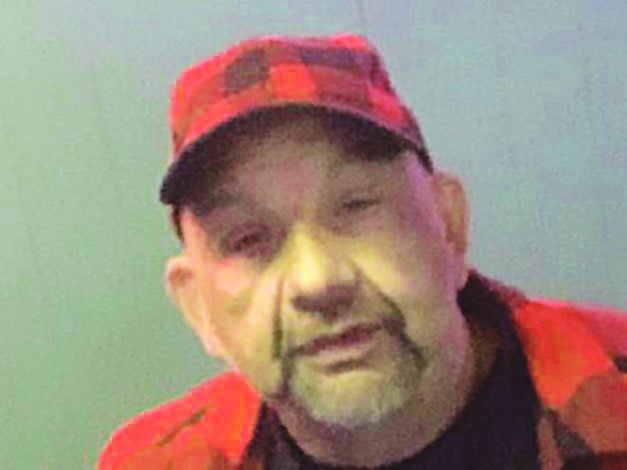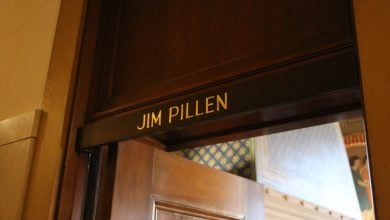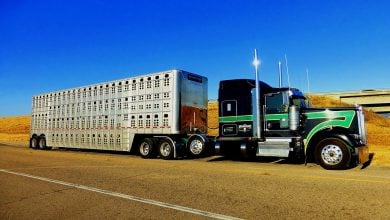Identity Of Man Accused Of Defrauding City Of Fairbury Uncovered

By Gordon Hopkins
The locals hired last year to move massive machines out of Fairbury’s now defunct municipal power plant knew him only as “Jimmy,” the man in charge of the operation. Fairbury Mayor Spencer Brown knew him as “Jimmy Daniels,” one of the owners and operators of Industrial Engineering Solutions (IES), the company now being sued by the city for allegedly failing to pay the agreed-upon amount for said machines.
The now-shuttered website for IES listed him as “Jimmy James,” General Manager.
FJN has learned that his real name is Jimmy Mitlo, and he has a criminal record in multiple states that dates back more than two decades, including a two-year stint in federal prison for tax fraud.
How “Jimmy” was Identified
In 2022, the City of Fairbury contracted with IES to sell generators, turbines, and other machines from the power plant. The city has made multiple attempts to reach out to IES, including filing a recent lawsuit, but thus far has not received a response. City Council president Kelly Davis told FJN, “How can you serve papers on a ghost? If you can’t find him, how do you do it?”
IES hired several local contractors to do the work of removal. Those contractors have asked not to be identified on the advice of legal counsel and for fear of retribution by the city.
Through their attorney, contractors said the job lasted from October 13, 2022, the day Mayor Brown signed the contract, until December 11, 2022. On December 12, they say they arrived at work to find IES had left town.
According to the contractors, some of them would travel with Mitlo to a metal recycling business in Lincoln, where Mitlo would sell scrap from the power plant. They saw the name, Jimmy Mitlo, on receipts.
“Jim Mitlo would take checks,” the contractors told FJN through their attorney, “and cash them at a local bank in Lincoln (several of us went with him) and run the operation on a cash basis.”
FJN made multiple requests for a copy of Mitlo’s mugshot from his 2011 conviction. The Federal Bureau of Prisons denied those requests, insisting the mugshot is not a public record. Jefferson County Sheriff Nick Georgi also asked for the mugshot. That request was also refused, as there was not an active criminal investigation at the time.
One of the contractors surreptitiously took a photo of Mitlo. FJN sent the photo to Frank Calta, CEO of Vi-Cal Metals, a metal recycling business based in California. In 2011, shortly before he was sent to prison, Vi-Cal Metals attempted to sue Jimmy Mitlo and Mercer Machine Works, Inc., one of Mitlo’s companies identified in the tax case court documents, for breach of contract. Vi-Cal Metals had agreed to finance the decommissioning of a power plant in Riverside, California. Calta told FJN, “Yes that’s him!”
The history of Mitlo and the law includes convictions in South Carolina and Texas
South Carolina
On February 23, 1998, Jimmy Mitlo was convicted in the U.S. District Court for the District of South Carolina of filing a false 1990 U.S. Individual Income Tax Return. The defendant agreed to a civil settlement of his income tax liabilities for the years 1989, 1990, and 1991, and signed a decision document on October 6, 2000.
Despite the conviction, it would be several years before this matter was settled.
Texas
On November 19, 2010. Mitlo pleaded guilty before United States District Judge Melinda Harmon in U.S. District Court for the Southern District Court of Texas to one count of willfully conspiring to impede and to impair the IRS (Internal Revenue Service) in its collection of nearly $350,000 in income tax liabilities he owed from 1989, 1990 and 1991. The total amount of taxes, penalties, and accruing interest still owed for those years amounted to approximately $349,939.09. “Defendant Jimmy Mitlo at all relevant times to the conspiracy was self-employed as a repairman of heavy machinery and as a reseller of scrap metal. Defendant Jimmy Mitlo operated his business under several names, including Power Industrial Machine, Inc., Power Machine Industries, Inc., and Mercer Machine Works, Inc.,” according to court documents. “During years 2004, 2005, 2006, 2007, and 2008, defendant Jimmy Mitlo earned in gross income a substantial amount of money. He did not use those earnings to pay his outstanding income tax liabilities for 1989, 1990, and 1991. He did not file a timely U.S. Individual Income Tax Return for years 2001, 2002, 2003, 2004, 2005, 2006, 2007, or 2008.”
Operating with Cash
Prosecutors in the 2010 case accused Mitlo of operating in cash. As noted in the court documents, “in order to conceal his income and assets from the Internal Revenue Service. Defendant used check-cashing businesses to cash the vast majority of the checks he received for his services, and defendant and one of his co-conspirators often used cash and money orders to pay defendant’s creditors.”
Using Banks to Avoid Detection
While he often used cash, Mitlo, and an unnamed, unindicted co-conspirator also used multiple bank accounts. Court documents note, “When it was convenient for defendant Jimmy Mitlo and the co-conspirator in question to use conventional banking, defendant Jimmy Mitlo and the co-conspirator established nominee bank accounts in the names of defendant Jimmy Mitlo’s sons and businesses. Defendant Jimmy Mitlo and the co-conspirator used these nominee bank accounts to pay the defendant’s ordinary personal expenses, including mortgage payments, credit card and utility bills, childcare expenses, home improvements, and medical and veterinary bills. Defendant Jimmy Mitlo deposited into these nominee bank accounts several checks he received in payment for his services. Defendant Jimmy Mitlo and the co-conspirator also deposited into these nominee banks accounts large amounts of cash.”
Prosecutors noted individual deposits were usually less than $10,000. Banks are required to report cash transactions greater than $10,000 to the U.S. Department of Treasury.
Purchases
Mitlo made a number of purchases during this period, often in cash.
On November 8, 2007, Jimmy Mitlo paid $24,500 in cash to purchase silver bars.
In 2005, Jimmy Mitlo and his co-conspirator purchased a home in Richmond, Texas, in which they lived as their principal residence, but had the house placed in the name of one of Mitlo’s sons. The prosecutors acknowledged, “While there were legitimate non-tax reasons for placing the house in the name of defendant’s son, defendant knew and understood that this arrangement also had the effect of concealing assets from the IRS.”
On May 6, 2005, Mitlo made an $84,000 payment to the title company to cover closing costs.
On May 26, 2006, through the son in whose name the house was titled, Mitlo applied for a $522,000 home equity loan. According to court documents, “The loan falsely claimed (i) that the son worked for Power Industrial Machine, Inc., and (ii) that the son earned a salary of $13,167 per month.”
Mitlo paid $7,000 of those funds in cash as the downpayment on the lease of a 2007 Mercedes Benz GL450 sport-utility vehicle.
The Mercedes was not the only car Mitlo and his co-conspirator obtained. From 2000 to 2008, they purchased or leased at least 13 vehicles, including two Cadillacs, two trucks, a Silverado, a Toyota Sienna, A Toyota Tacoma, a Toyota Sequoia, and several Saturns. Most of these vehicles were titled in the names of one of Mitlo’s businesses or other co-conspirators.
Plea Agreement
Jimmy Mitlo pleaded guilty and was sentenced to 24 months in federal prison without parole. The court included in its order of restitution income taxes Jimmy Mitlo owed for years 2004 through 2008 of $205,781.27, along with the unpaid $349,939.09, from the 1998 conviction, making the total restitution ordered $555,720.36
Mitlo was released from prison on June 17, 2013, and placed on post-release supervision until the debt was repaid.
See Also:





